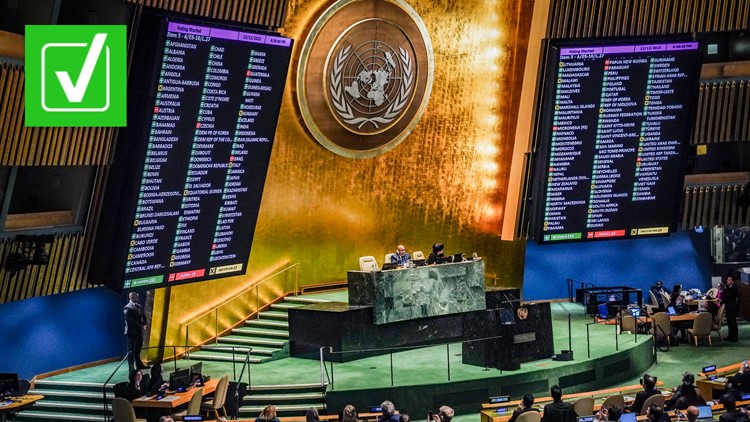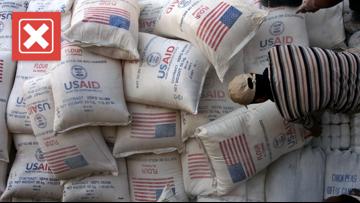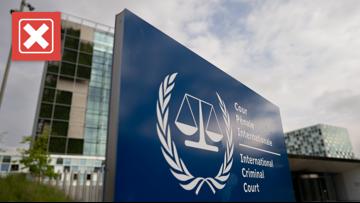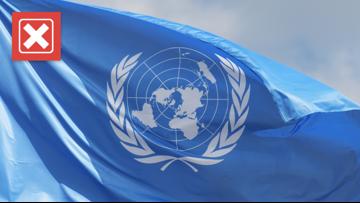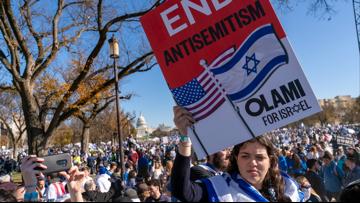The United Nations held an emergency special session of the General Assembly on Dec. 12 to call for a ceasefire in the war between Israel and Hamas, which began Oct. 7 when Hamas militants attacked Israeli villages and has led to thousands of civilian deaths in Israel and Palestine.
153 countries voted to pass a resolution “demanding immediate humanitarian ceasefire in Gaza, as well as immediate and unconditional release of all hostages.” Ten countries, including the United States, voted against and 23 abstained.
The session was called after a group of UN member countries invoked a rarely-used protocol to pass the resolution despite American attempts to block it. Some social media users claimed that despite such sessions being rare, they have been called several times in the past in response to action taken by Israel.
“Of the 13 times that [this protocol] has been invoked… five have been related to Israeli aggression, occupation, invasion,” read one post on Instagram with nearly 80 thousand likes.
THE QUESTION
Has the UN General Assembly held five emergency sessions in response to Israeli aggression?
THE SOURCES
- United Nations
- Text of UN Resolution 377
- Text of resolutions passed during emergency special sessions
- Security Council Report, an independent think tank that tracks UN Security Council action
- Rosa Freedman, University of Reading professor of law, conflict and global development
THE ANSWER
Yes, the UN General Assembly has held five emergency sessions in its history in response to Israeli aggression.
WHAT WE FOUND
To call an emergency special session, several UN member countries must invoke Resolution 377, titled “Uniting for Peace.” It allows the full UN General Assembly to make recommendations on matters of international security.
Ordinarily such matters can only be handled by the UN Security Council, which has much broader powers than the General Assembly. But the 15-member council frequently gets deadlocked because its five permanent members (the United States, United Kingdom, France, Russia, and China) all have veto power.
Resolution 377 was passed in 1950 to provide a way for all UN members to weigh in on major conflicts in the event of such a Security Council deadlock.
It reads, “if the Security Council, because of lack of unanimity of the permanent members, fails to exercise its primary responsibility for the maintenance of international peace and security in any case where there appears to be a threat to the peace, breach of the peace, or act of aggression, the General Assembly shall consider the matter immediately.”
If invoked when the General Assembly is not already in session, the resolution allows an emergency special session to be called, during which the full assembly can consider and pass resolutions making non-binding recommendations to UN member countries on how they should respond to a conflict.
According to the United Nations, the General Assembly has held 11 emergency special sessions under the Uniting for Peace resolution.
However, analysts generally say the resolution has been invoked 13 times in its history. The two additional instances are not listed by the UN because procedural technicalities meant an actual emergency special session was not necessary. In both cases the language of Resolution 377 was invoked and led to the General Assembly passing recommendations on global conflicts.
Israel
Five of the emergency special sessions called with Resolution 377 pertain to Israel’s actions.
The first of these, in 1956, was in response to the Suez Crisis, in which Israel, the United Kingdom, and France invaded Egypt after its president nationalized the Suez Canal. Both the United States and Soviet Union proposed resolutions in the Security Council calling for troops to withdraw; both were vetoed by France and the United Kingdom. The General Assembly used Resolution 377 to call an emergency special session, during which it passed a series of resolutions calling for a ceasefire and criticizing Israel, France, and the U.K. for the invasion.
The second was in 1967, following the “Six-Day War” between Israel and several Arab nations. During the war, Israel significantly expanded its territory, including claiming East Jerusalem. After U.S.-Soviet tensions deadlocked the Security Council, the General Assembly passed several resolutions calling for humane treatment of civilians and specifically condemning “measures taken by Israel to change the status of [Jerusalem].”
In 1980, the United States vetoed attempts in the Security Council to declare certain rights for Palestinians and call for Israel to withdraw from certain territory. An emergency special session was called, and the General Assembly passed resolutions which included “call[ing] upon Israel to withdraw completely and unconditionally from all the Palestinian and other Arab territories occupied since June 1967, including Jerusalem.”
In 1981, the Security Council passed a resolution condemning Israel after it effectively annexed the Golan Heights region of Syria, saying “the Israeli decision to impose its laws, jurisdiction and administration in the occupied Syrian Golan Heights is null and void and without international legal effect.” Israel did not reverse course, and in 1982 members of the Security Council aimed to take further action, but were blocked by the United States. An emergency special session was called, and the General Assembly passed resolutions strongly condemning both Israel and the United States, declaring “that Israel’s record and actions confirm that it is not a peace-loving Member State,” and recommending that UN nations sever all relations with Israel.
The current and most recent emergency special session related to Israel was first called in 1997. It was originally in response to Israeli settlements in the West Bank and other Palestinian territory, but has since become a general avenue for the General Assembly to debate the broader Israeli-Palestinian conflict. Unlike every other emergency special session, this one has never formally ended – instead it’s been adjourned and reconvened at least 16 times. In 2023, this session has resulted in several General Assembly resolutions calling for a ceasefire in Gaza, improved humanitarian conditions, and the release of all hostages held by Hamas. The Dec. 12 meeting is a continuation of this emergency special session.
The other six of the total 11 emergency special sessions have dealt with conflicts in Hungary, Lebanon, the Congo, Afghanistan, Namibia, and Ukraine. The two instances Resolution 377 was invoked but did not require an emergency special session dealt with conflicts in Korea and Bangladesh.

